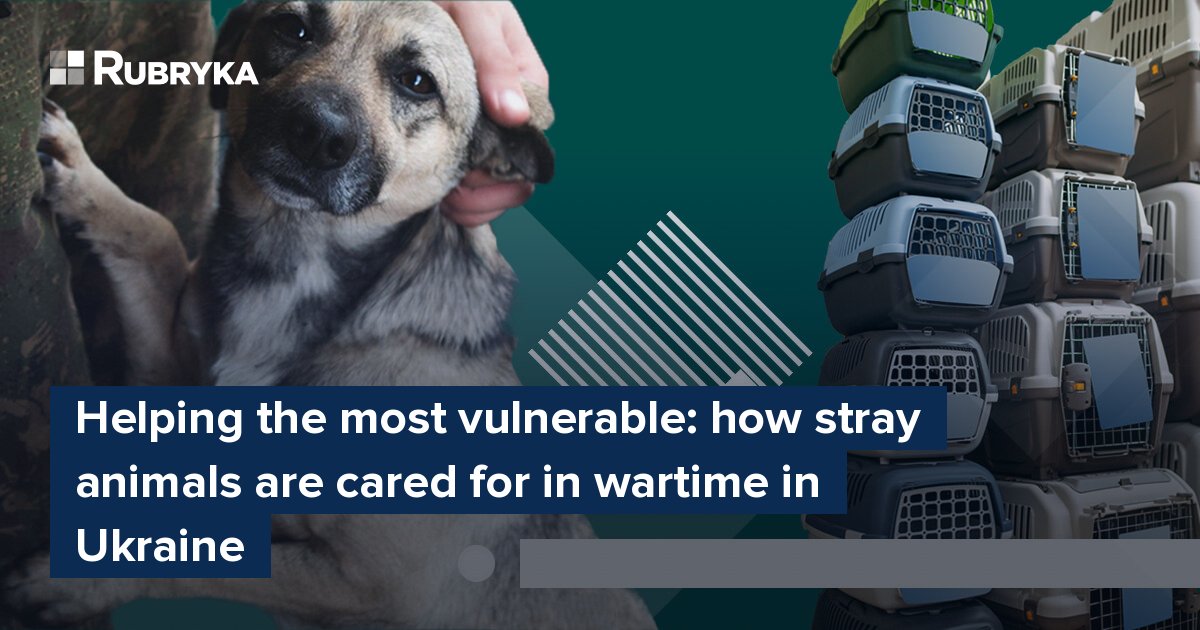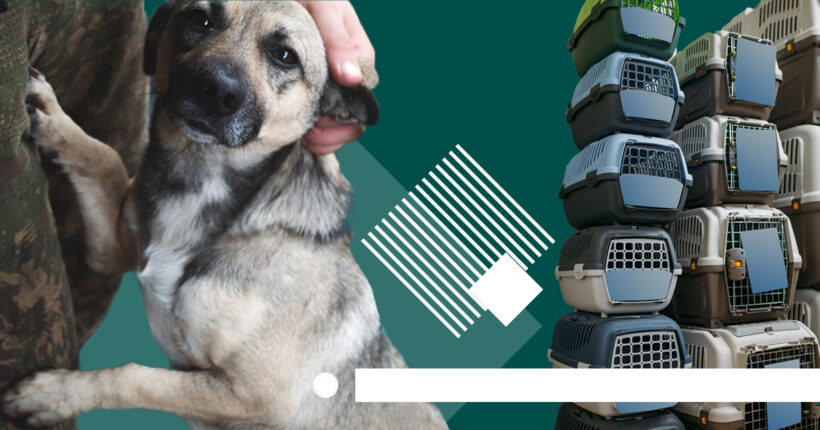
What is the problem?
Not only people but also animals suffer from active hostilities in various cities. These are pets and animals in shelters and zoos. Since the beginning of russia's full-scale invasion of Ukraine, thousands of them have found themselves in a difficult situation with no hope of rescue. Some lost their homes or owners and ended up on the street. Some of them are formerly homeless animals previously cared for and fed by local people who are currently unable to do it due to their safety. In addition, farm animals also suffer. As of June, due to hostilities, more than 6 million farm animals died in Ukraine.
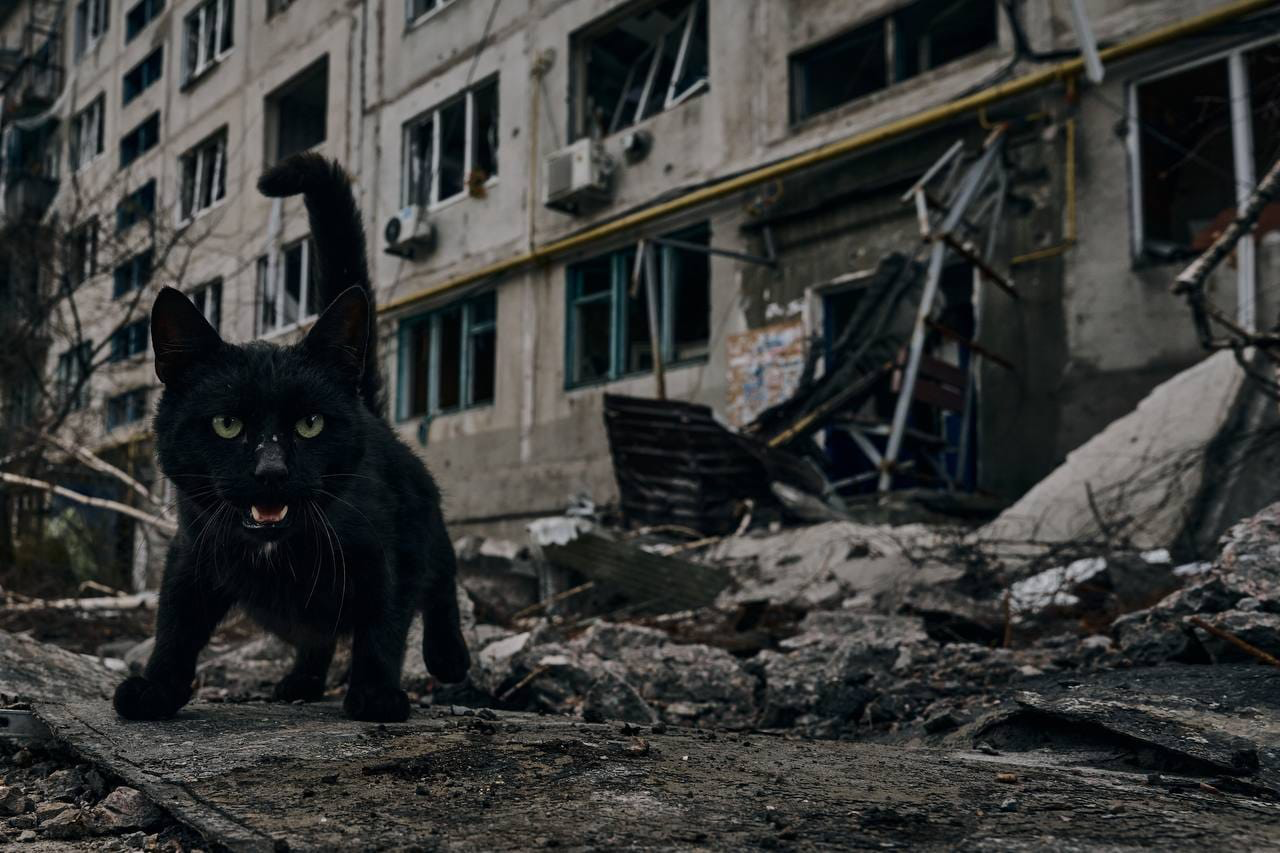
A hungry cat left in the ruins of its former home. Source: UAnimals
The issue of petting zoos and sanctuaries remains open. Not all animals can be removed and evacuated. All this creates the need to find solutions to help animals in this challenging time.
What is the solution?
With the beginning of hostilities after February 24, volunteers and public organizations began to help not only people but also animals. For example, the organization UAnimals, from the first days of the full-scale invasion, reformatted its activities to meet the challenges of war. VETMARKET Pluriton employees traveled to Bucha and Irpin, evacuating injured and abandoned animals. One of the founders of the public organization Vyvezemo in early March left the besieged Mariupol. This experience prompted him to help people, animals, and shelters leave the almost occupied city.
Currently, volunteers of each of these associations continue to work, risking their safety and lives. But they are not ready to leave abandoned animals to fend for themselves.
How does it work?
From fodder to generators and evacuation
In Ukraine, several organizations now help animals during the war, both in territories controlled by Ukraine and those that have already been liberated from the enemy. One of them is the popular animal rights organization and movement UAnimals.
According to the operations director of UAnimals, Olha Chevhaniuk, people called the organization on the first day of the full-scale invasion, asking how to save the animal and take it abroad correctly. Combat actions, particularly in the Kyiv region, prompted them to hire new people and create a call center that would help citizens with consultations on evacuation and assistance to animals.
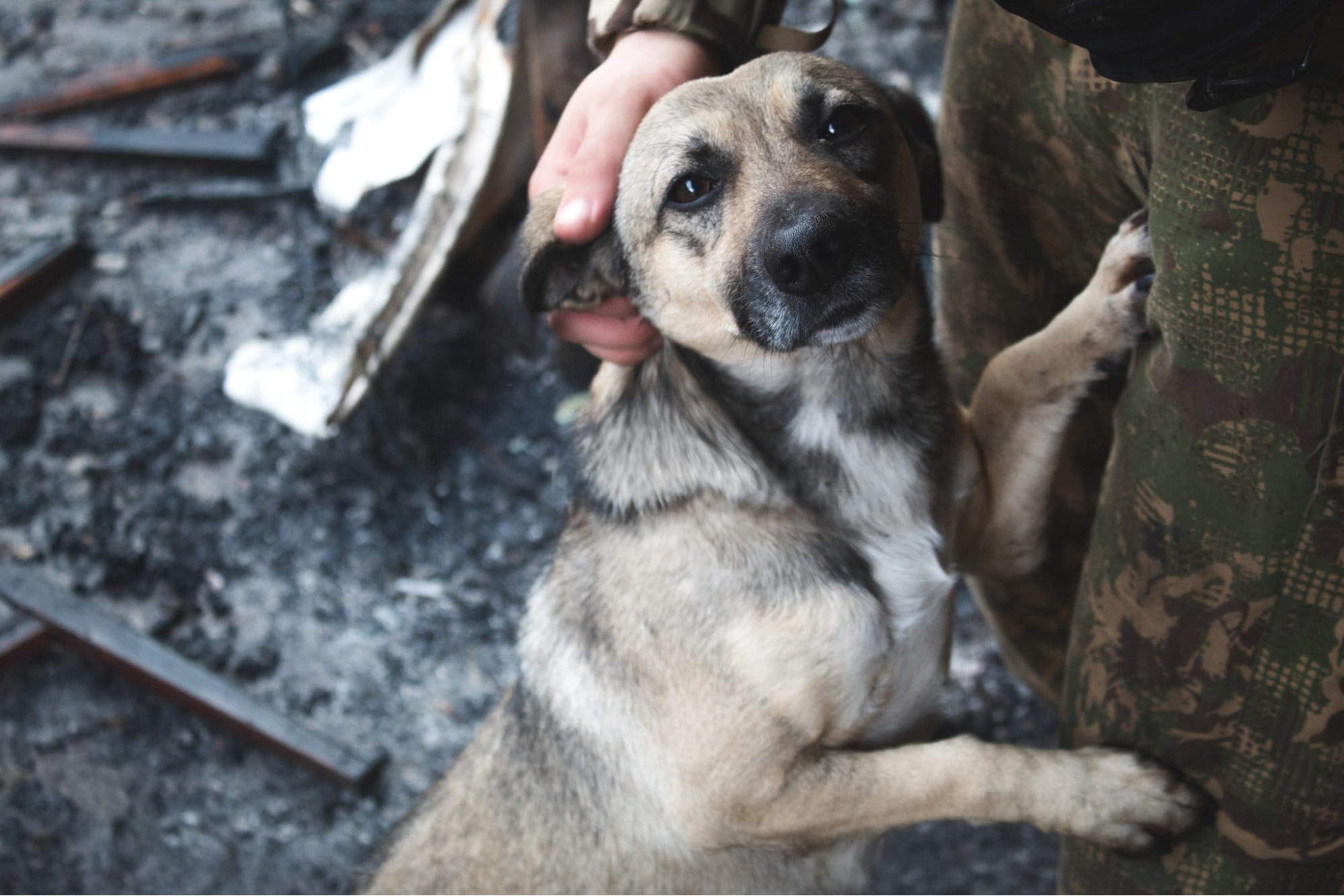
Sharik, a dog who lost his family, receives help from UAnimals. Source: UAnimals
Currently, the organization works in several areas. The first is the provision of humanitarian aid to animals in places where they need it most. We are talking about Mykolaiv, Kherson, Kharkiv, Donetsk, Luhansk, and Zaporizhzhia regions. Here, UAnimals volunteers bring fodder to shelters, hay to stables, provide them with the necessary medicines (including vaccines), get necessary things (beds, carriers, ammunition), feed and help stray animals. At the same time, work is underway on the Winter is Near project, aimed at fundraising. With this money, the shelters will be prepared for winter; they will buy generators, food, and medicines, particularly tranquilizers. Due to hostilities and shelling, animals are scared and nervous, try to escape, and can harm themselves.
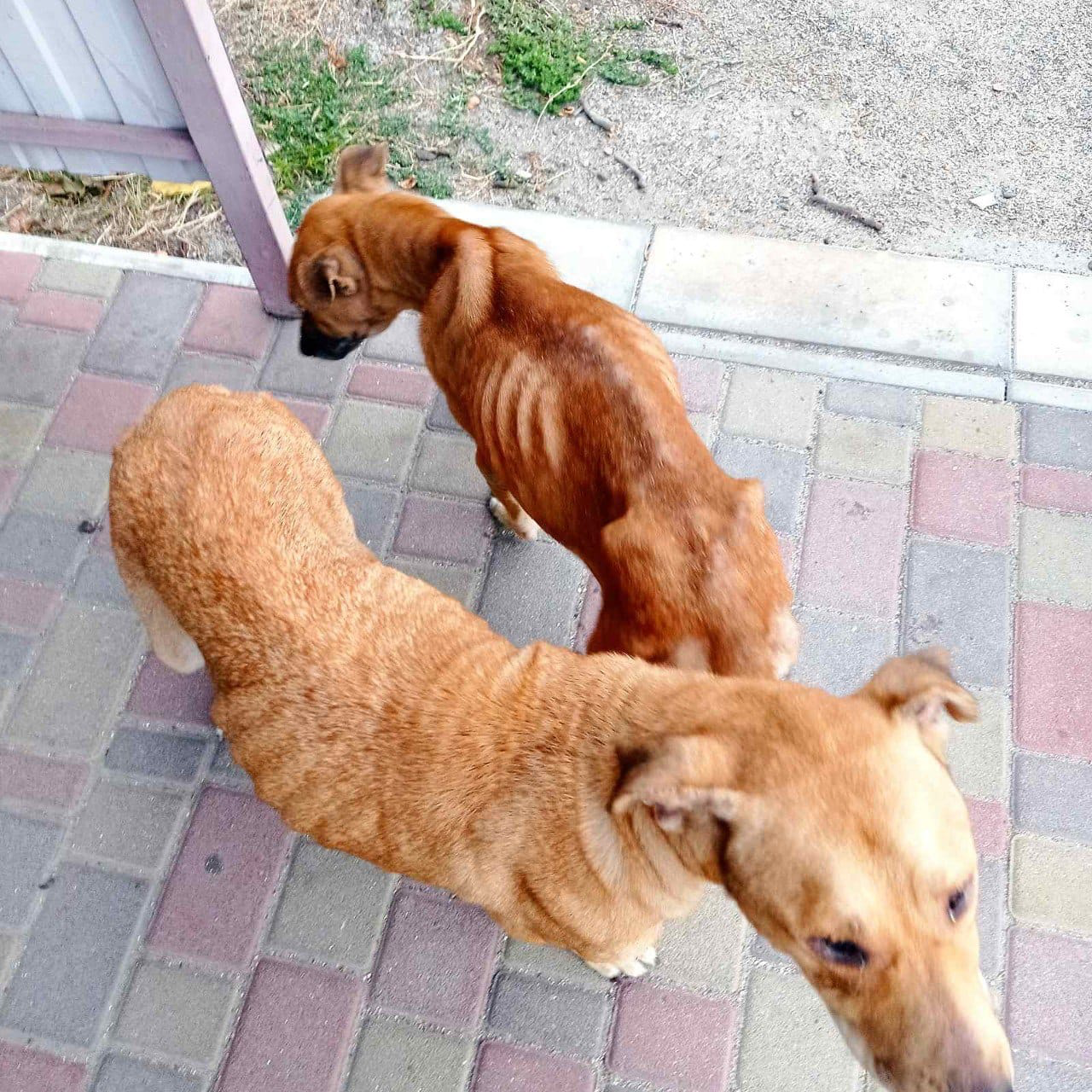
Hungry and exhausted dogs are not uncommon these days. Source: UAnimals
"We learn what shelters need at times like these. We have lists of shelters, just people who have animals. We call them, and they call us. We receive a list of needed things, then deliver it all to the destination," says Olha Chevhianiuk.
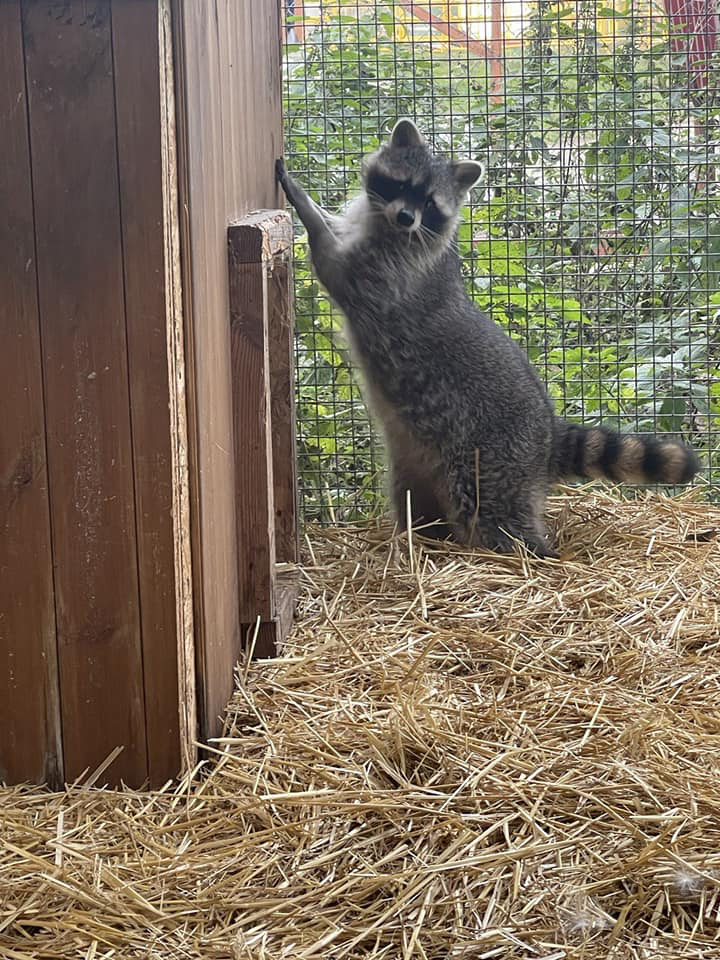
Once, the UAnimals team sheltered Lucky the raccoon. Source: UAnimals
Most humanitarian aid is sent by mail, with which the organization has a contract for free delivery. As of November 17, 6 days after the liberation of Kherson from the occupiers, representatives of the UAnimals team were already preparing to enter the city to help the animals.
"They didn't let us in the first week, but we went to villages and towns near Kherson that were liberated earlier. They also helped shelters and just animals there. Tomorrow (November 18, ed.), one of our volunteers will go there again. She is from Bulgaria and came here to help our animals. We hope she can get into the city and feed the dogs," says Olha.
As of November 19, the UAnimals team managed to help 433 animals in one full day in Kherson.
The UAnimals second area of work is evacuation. This includes evacuating shelters, zoos, and animals from reserves that may be injured and need help due to shelling or hostilities. So, for example, in the spring, it was possible to save animals from the Feldman Ecopark, which was located not far from Kharkiv.
Here you must work with wild animals and arrange conditions for them to move. If the predatory animal cannot find a place in another shelter or zoo in Ukraine, it is taken abroad to more suitable conditions. For example, the team had the experience of evacuating an animal to the Republic of South Africa.
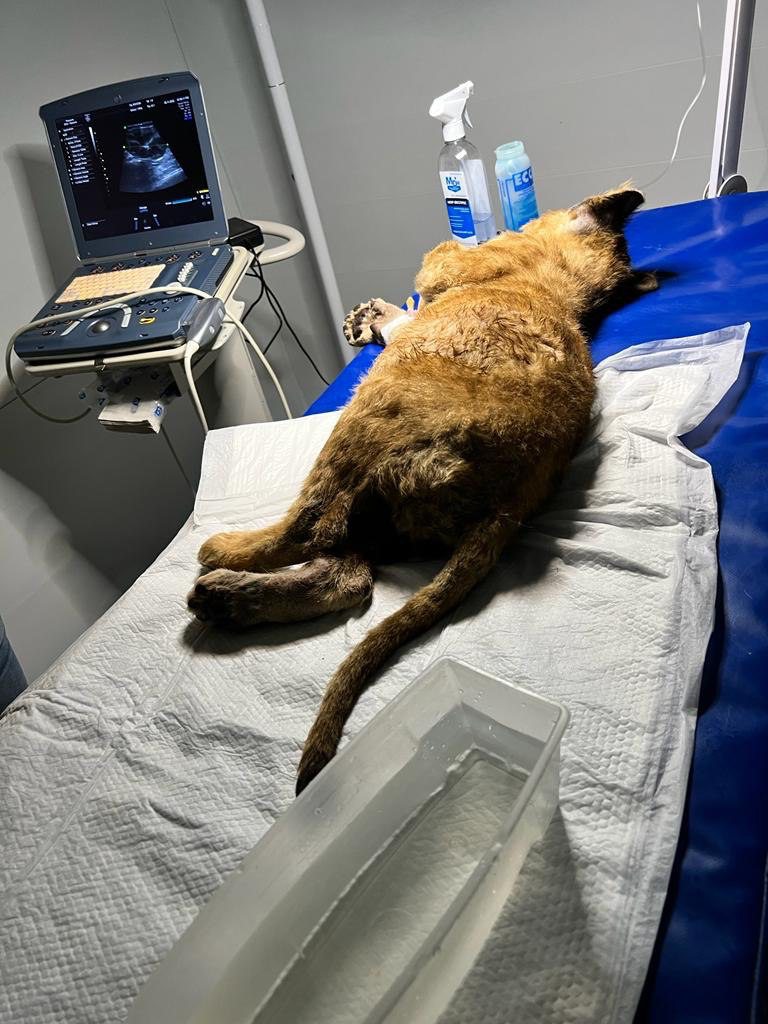
Helping seriously ill lion cubs. Source: UAnimals
In addition to animals from zoos and shelters, there is an evacuation of homeless animals or animals that have lost their owners for various reasons. Unfortunately, among such animals, there are often injured, shellshocked, or in need of immediate treatment.
The third area of work is the reconstruction of shelters and assistance with their work. So, the shelters in Hostomel and Chernihiv have already been restored: earlier, due to hostilities, the buildings were damaged, in some places even destroyed, so they needed help.
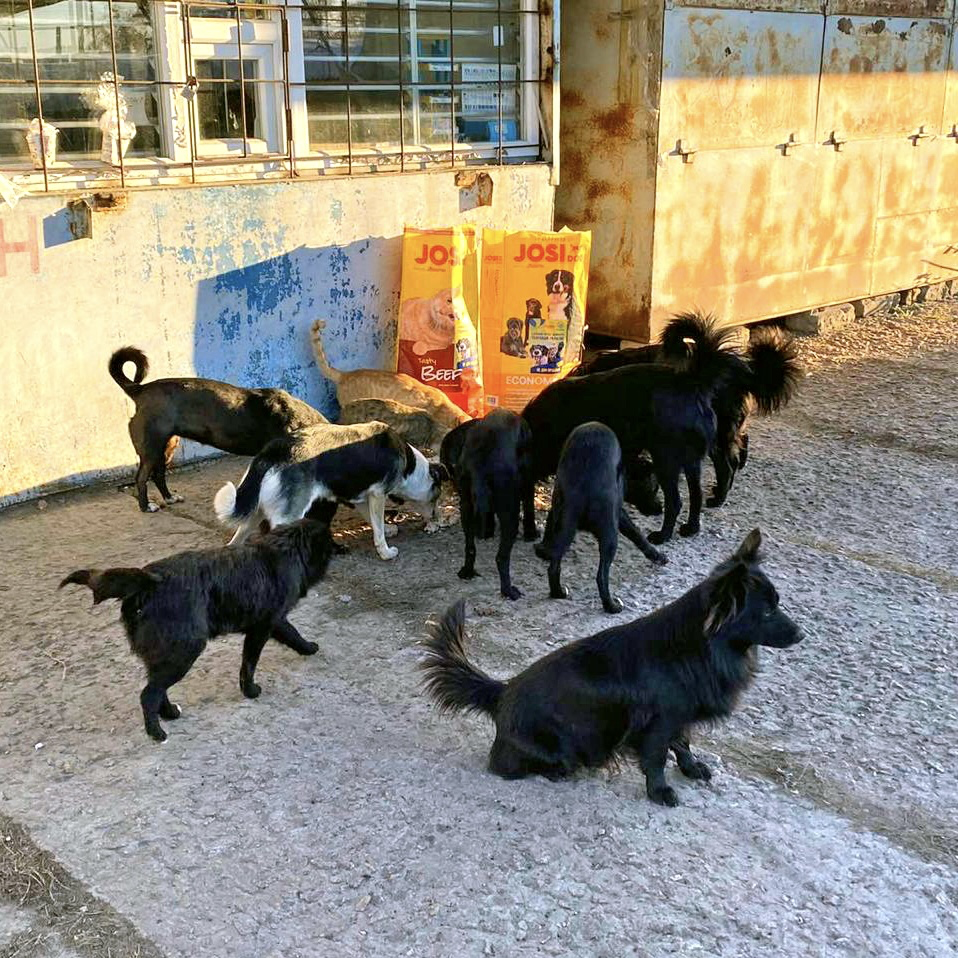
The need for food is constant and does not disappear anywhere. Source: UAnimals
"We are currently running a project to neuter animals left on the street, multiplying, and many die due to lack of help. One cat can give birth to 20 kittens in one year. In five years, this is already 100 kittens, each of which can have the same number of kittens. Therefore, sterilization is important. We are gradually working on it," says Olha Chevhaniuk.
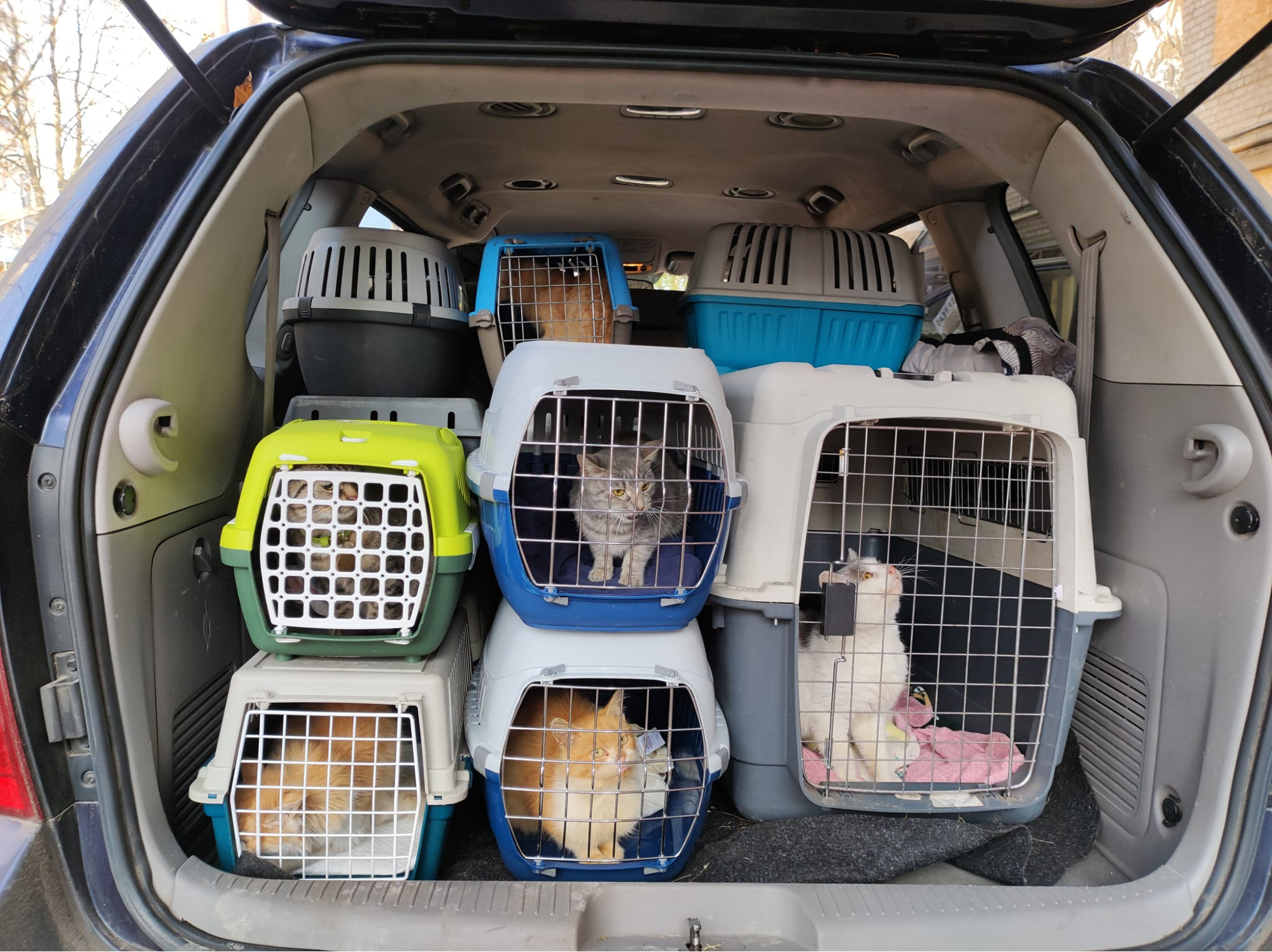
Evacuation of animals from dangerous areas. Source: UAnimals
UAnimals is currently promoting a bill to ban fireworks. According to the organization's representatives, fireworks harm animals, scare them, and hurt their psyches. According to Olha, it is easier for people to explain why they can disturb the animals in the current conditions.
At the same time, UAnimals tells the whole world about what is happening now in Ukraine and what crimes the russian federation is committing against humanity—in particular, they organized photo exhibitions and a march in support of animals in Warsaw.
Animals in occupied, recently de-occupied territories and in most demanding conditions
VETMARKET Pluriton is a company that has been working in the commercial veterinary business since the beginning of its activity. But after the beginning of a full-scale invasion, the team realized that at this time, not only people needed help but also animals under challenging conditions. So the organization ceased commercial activities and instead focused on volunteer and charity work; animals needed to be saved, and this could not wait.
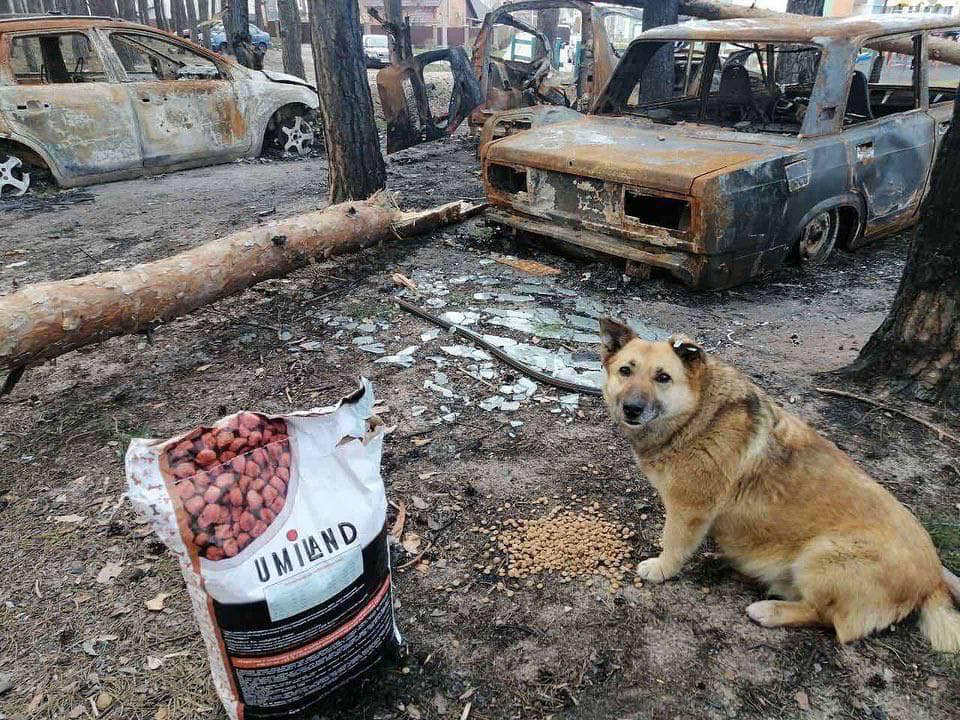
Photo from Irpin, where VETMARKET Pluriton helped animals. Source: Hanna Ovsiichuk
Representative and one of the organization's founders, Vitalii, says that it all started with the evacuation of animals from Bucha and Irpin in March of this year.
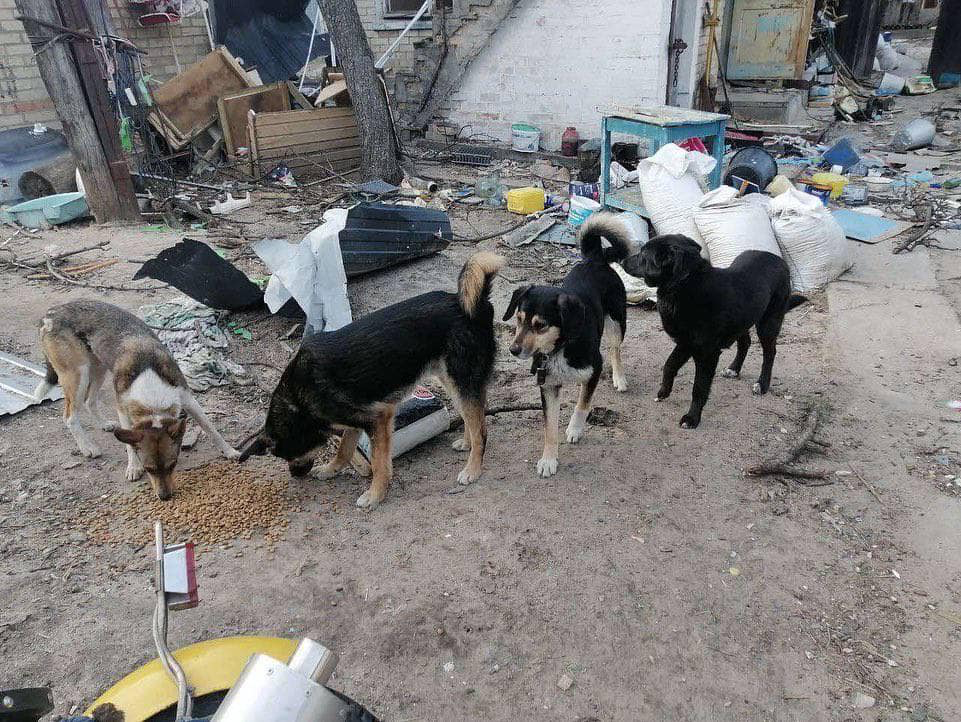
VETMARKET Pluriton in Irpin. Source: Hanna Ovsiichuk
"We helped shelters even before the war. And when the war started, I had friends in Kyiv. I was in constant contact with them. They told me that many people in Bucha and Irpin needed help. They helped animals, helped people, and took them out of there. We started sending everything we could help with—fodder, medicine, ammunition," Vitalii says.
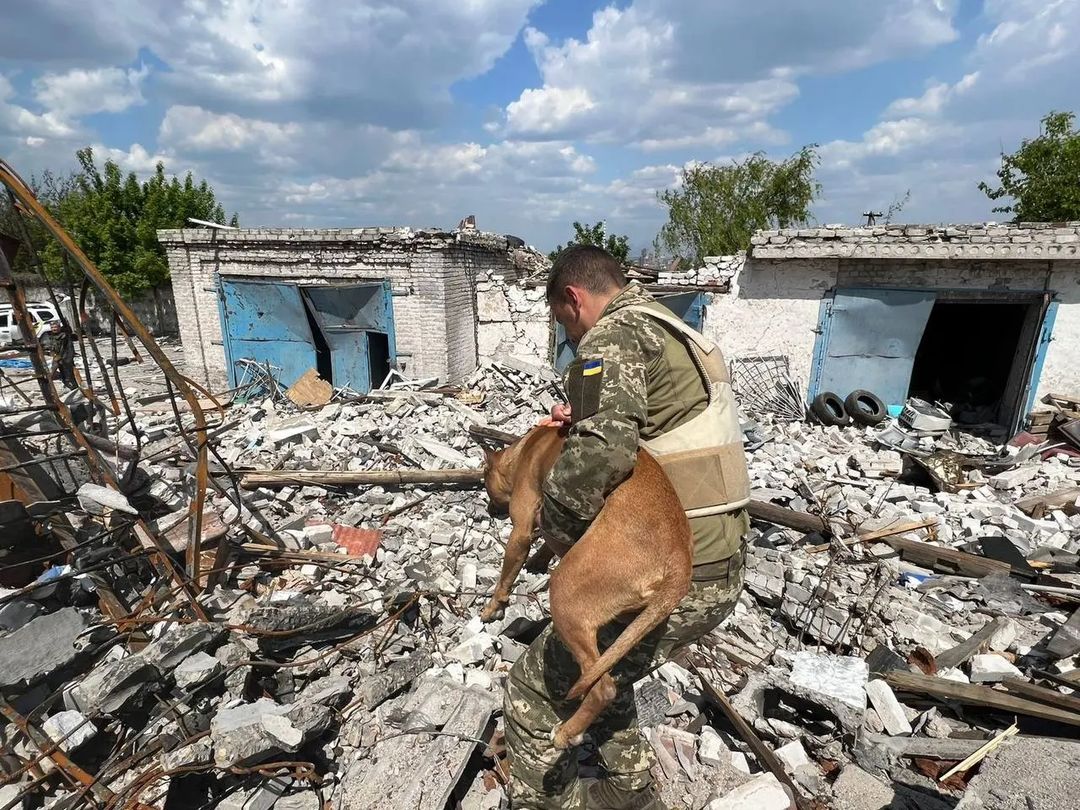
A military man rescues a dog from Lysychansk. Source: VETMARKET Pluriton
After the de-occupation of the Kyiv region, the team decided to go to the Donetsk region and continue helping animals in the most challenging areas. These are Sievierodonetsk, Lysychansk, Rubizhne, Lyman, and Sviatohirsk, where heavy hostilities had already taken place, and the enemy surrounded the cities. At that time, thousands of animals remained in these cities, deprived of normal nutrition and support. The team traveled to Lysychansk, brought fodder and medicine for the animals, and evacuated those who needed it as long as it was possible to do so.
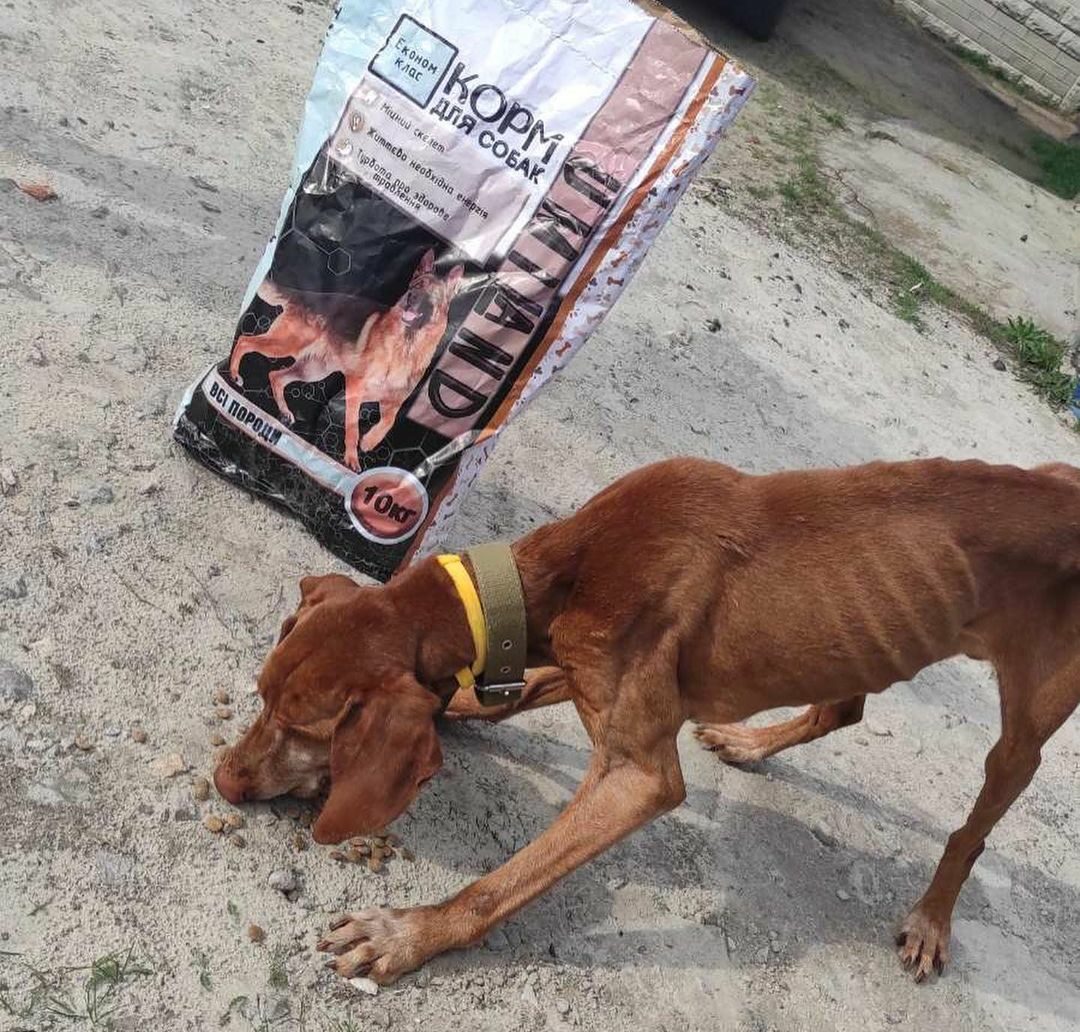
Helping a dog named Rem from Kharkiv. Source: VETMARKET Pluriton
After the liberation of Lyman and Sviatohirsk in the Donetsk region, the organization's volunteers were among the first to help animals.
"We arrive, and they just run to us. Many are thin, weak, and haven't eaten for a long time. Some have injuries. We can't throw them away, we try to take them all out, but it's very problematic because all our shelters are already overcrowded," says Kateryna, a VETMARKET Pluriton volunteer.
According to Kateryna, the organization tries not only to take animals to the shelter but also to find them a home. Every day it becomes more and more complex, but the team actively posts about animals looking for a home on social media and tries to find owners for everyone.
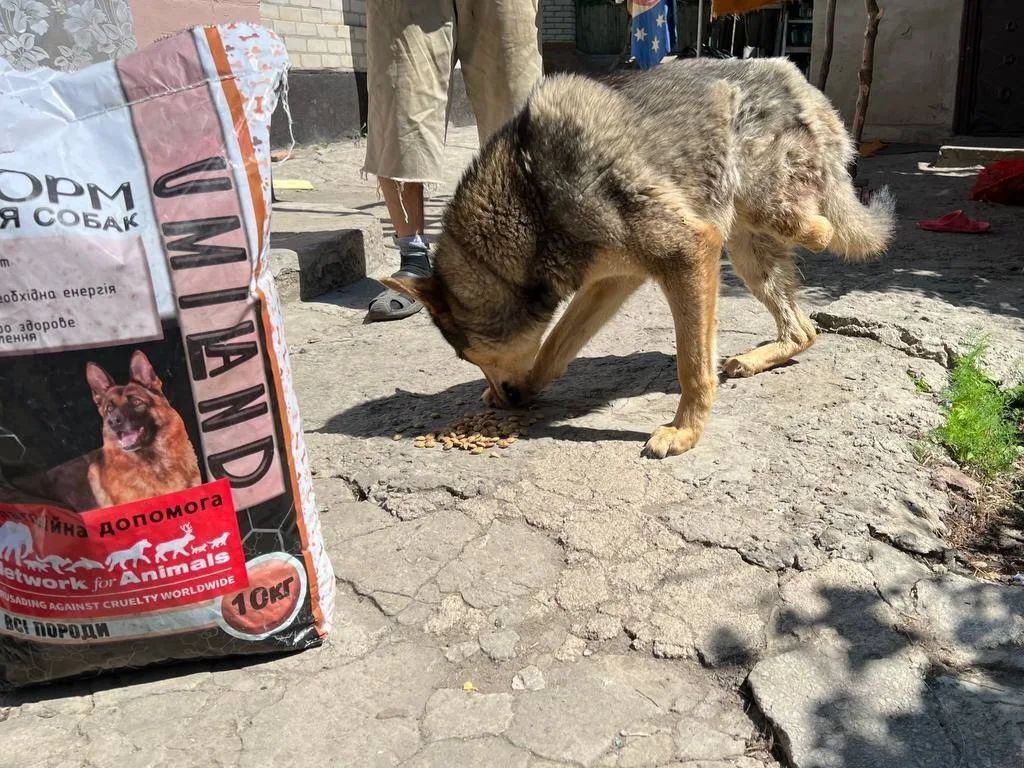
More feed! Source: VETMARKET Pluriton
If animals were taken from Bucha and Irpin to Kyiv shelters, which were not as crowded then as they are now, animals from the Luhansk region and Donetsk region would be taken to the Dnipro in nearby cities. Animals stay in the shelter until they find a new home for them.
The VETMARKET Pluriton team is about fourteen people, four constantly traveling to flashpoints to deliver aid while under fire. Due to attempts to work in the occupied territories, part of the team was captured.
"There was a point when the team went even to the occupied Lyman. This is our hero Volodymyr. He was waiting for the moment when he could slip past more or less normal russians at checkpoints. But at one point, he and other people with him were taken prisoner," says Vitalii, one of the organization's founders.
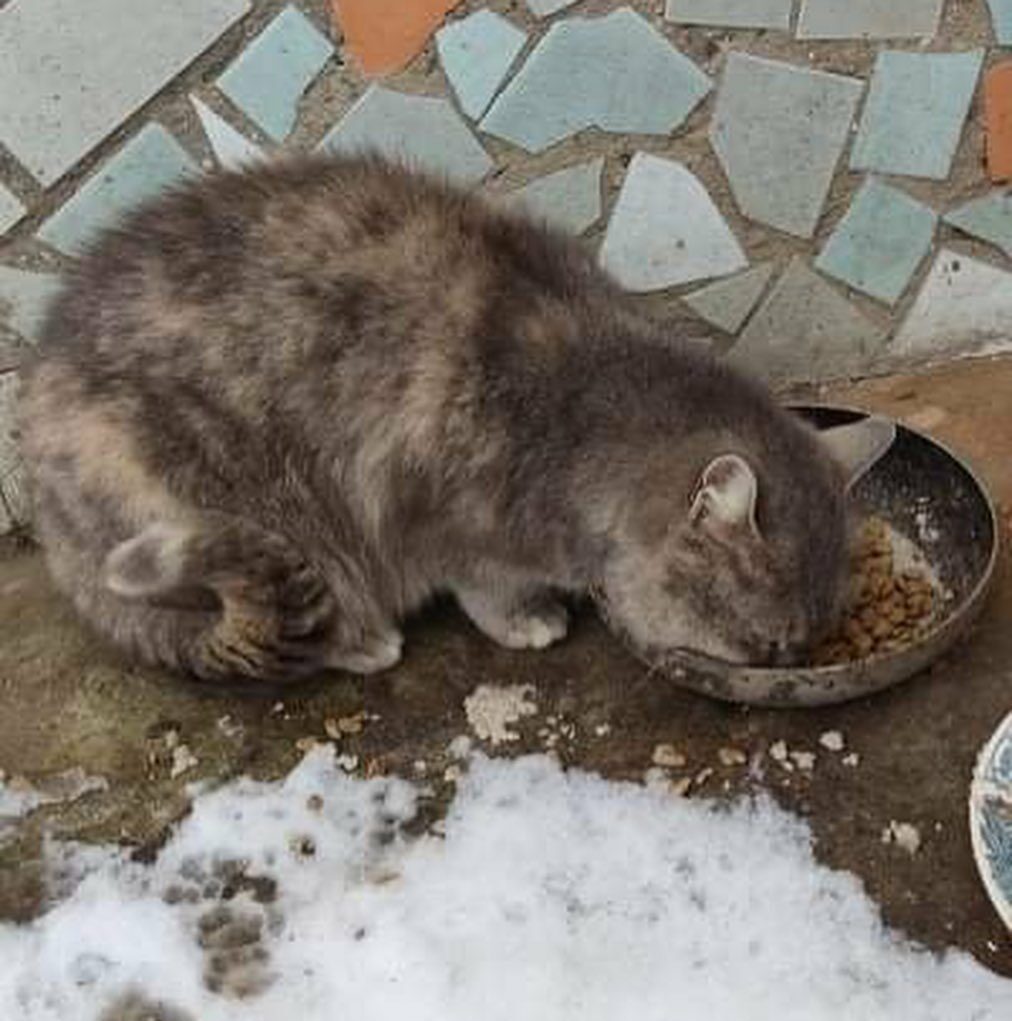
Source: VETMARKET Pluriton
One of the most difficult situations for the team today is working at the Yampil Zoo. After the release of Lyman and Yampil, volunteers went to the local petting zoo, which was located nearby and was also under occupation, to rescue the animals from there. But, as it turned out, there was no one to save: during the occupation, the russians killed and ate animals, and most of them died of exhaustion and hunger. There were skeletons and remains of animals all over the zoo. Now the team is busy publicizing the event and submitting a report to the police.
The so-called animal "nurseries" are also on the radar of the organization. So, for example, when an enemy bomb hit the spitz "kennel" in Irpin in August, many animals died there, but some were saved; volunteers of the organization fed them and took them to a safer place in Kyiv.
Taking animals out of occupation
An activist from Mariupol, Oleksandr Sosnovskyi, left the city at the beginning of March. In May, he began helping to evacuate the city pets that were lost or ran away during the shelling. Together with acquaintances from the city, Oleksandr founded the Vyvezemo public organization, which was engaged in evacuating people and animals from Mariupol.
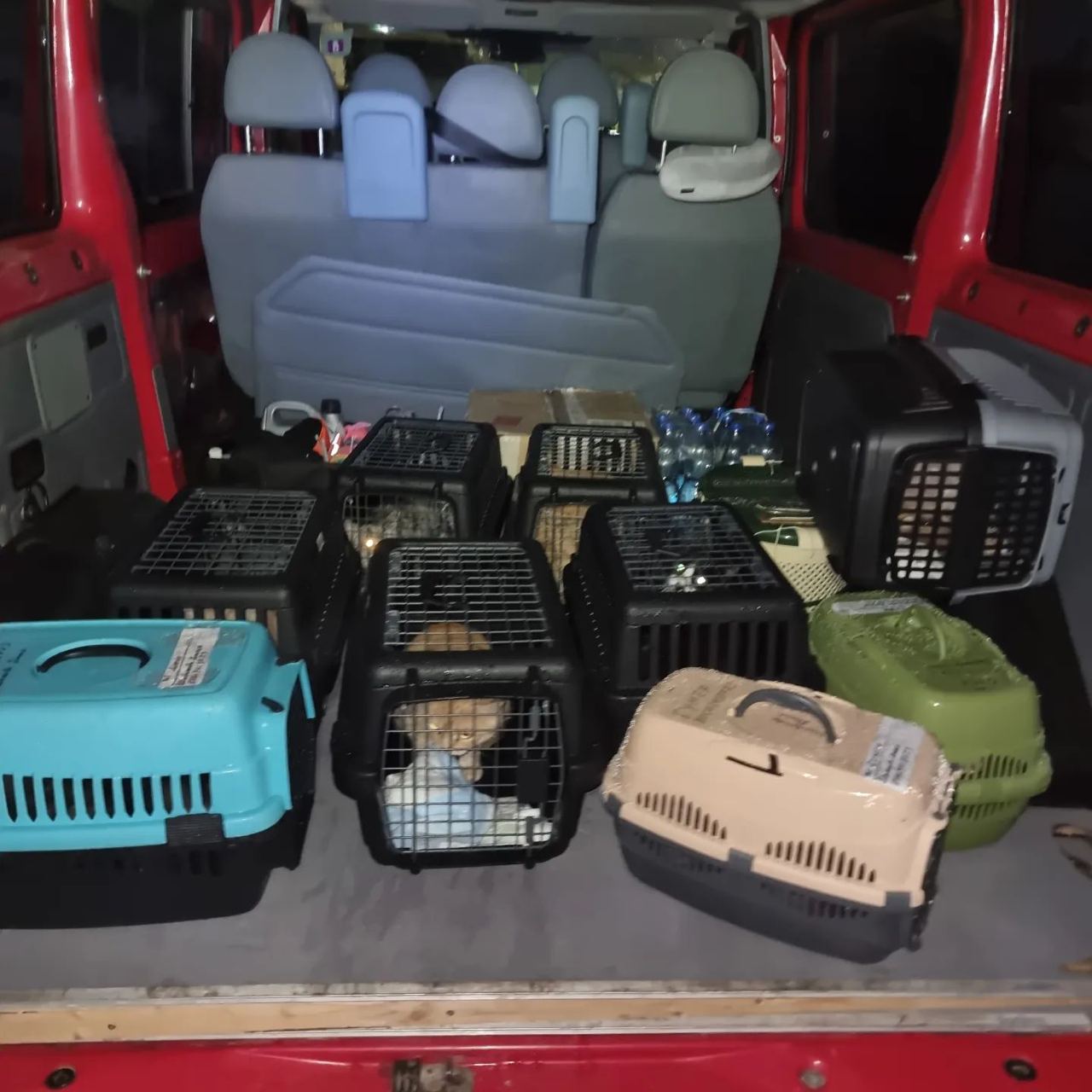
Evacuated animals. Source: Oleksandr Sosnovskyi on Facebook
Vyvezemo created a Google form where all those willing could submit an application with all the necessary information to have their pet evacuated from the occupied territory or the gray zone. According to the volunteer, people find this form independently and send applications to take out cats or small dogs. The team organizes raids only on the territory of the occupied Zaporizhzhia and Donetsk regions.
Evacuating animals from the occupied territories is a complex and unpredictable process. To travel from Zaporizhzhia to the temporarily occupied territory, you need a pass to enter Mariupol and another pass to leave. All this takes time and resources. Difficulties also arise at checkpoints and the crossing line in Vasylivka (the final exit point from the occupied Donetsk and Zaporizhzhia regions to the controlled territory of Ukraine), where you can stand in line from one day to a whole week. At this time, animals must be cared for.
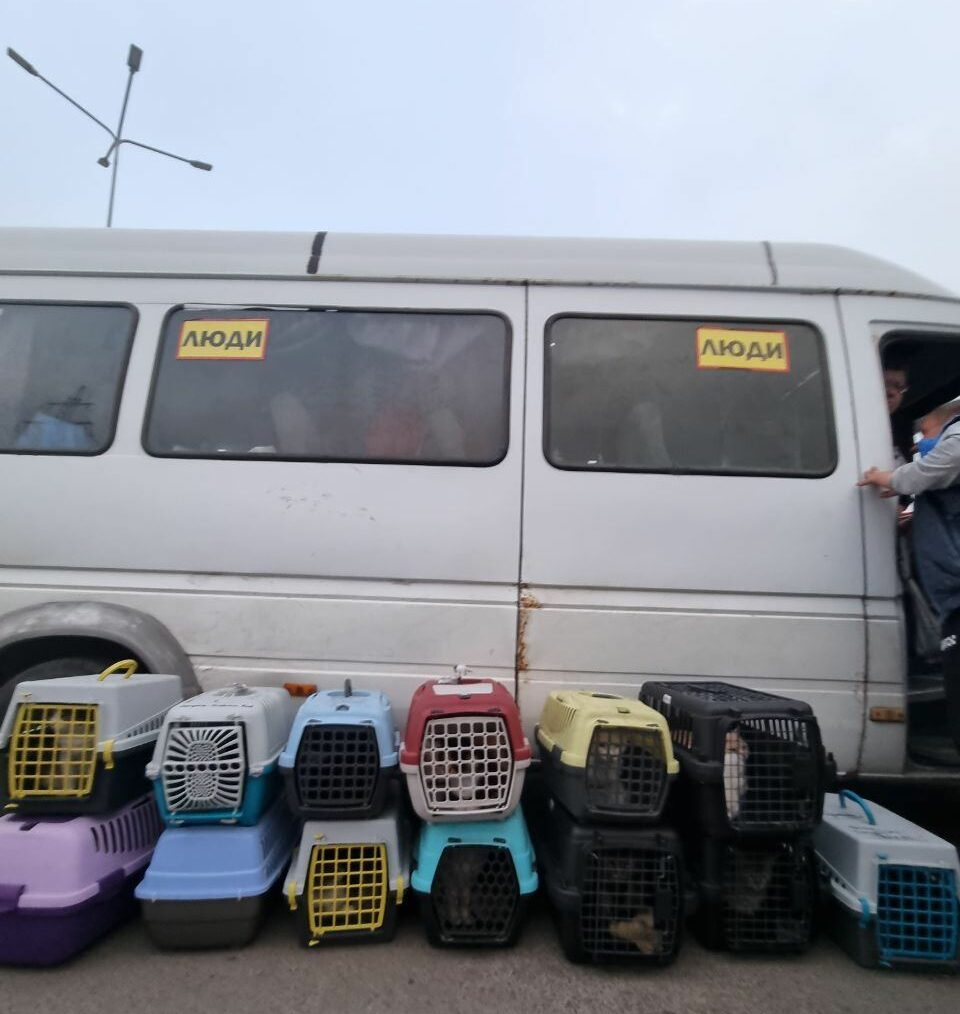
Evacuated animals. Source: Oleksandr Sosnovskyi on Facebook
In addition to taking out animals that have owners, Oleksandr is involved in evacuating shelters and just stray cats. For some time, they helped the shelters in the currently occupied Berdiansk with fodder and medicine.
"Previously, we managed to deliver food and medicine, which we bought for donations or received from other organizations, to villages and small towns of the gray zone near Zaporizhzhia. But now it has become impossible because, at russian checkpoints, such a product was considered 'commercial' and was simply not allowed through," Oleksandr Sosnovskyi explained.
As a result of rocket attacks on Zaporizhzhia, Oleksandr's warehouse of humanitarian aid with fodder was destroyed. The circumstances temporarily stopped the possibility of conducting raids on the occupied territory. But the Vyvezemo team does not give up and continues to look for new ways to save animals.

Oleksandr Sosnovskyi with humanitarian aid for animals, which an enemy missile will later destroy in Zaporizhzhia. Source: Oleksandr Sosnovskyi on Facebook
Does it work?
Such work does not go in vain: animal rights activists and volunteers save the lives of thousands of animals. Thus, during its work, UAnimals managed to take out more than 300 wild animals, thousands of pets, and street animals that needed help and treatment from dangerous areas. At the same time, VETMARKET Pluriton evacuated more than a thousand animals from dangerous zones from the beginning of the full-scale invasion, and Vyvezemo NGO took more than 240 animals to the territory controlled by Ukraine from May to the beginning of October. All of them could have died of starvation or shelling, but thanks to volunteers, they are now safe and finding new homes and owners.
In addition, during their organization work, dozens of shelters were supported, including those in temporarily occupied territories. Volunteers delivered hundreds of thousands of kilograms of fodder as humanitarian aid and sterilized more than five thousand homeless animals.
Ukrainians help their own and do not leave anyone in trouble—this is the most important thing to know.
This article was created by the Rubryka online publication within the Ukraine Rapid Response Fund program, implemented by IREX with the support of the US State Department. The content is the sole responsibility of the Rubryka online publication and does not necessarily reflect the views of IREX or the US State Department.


